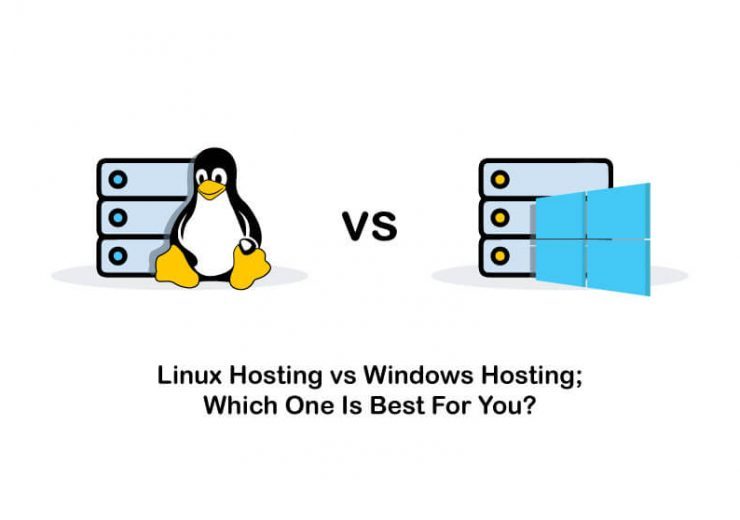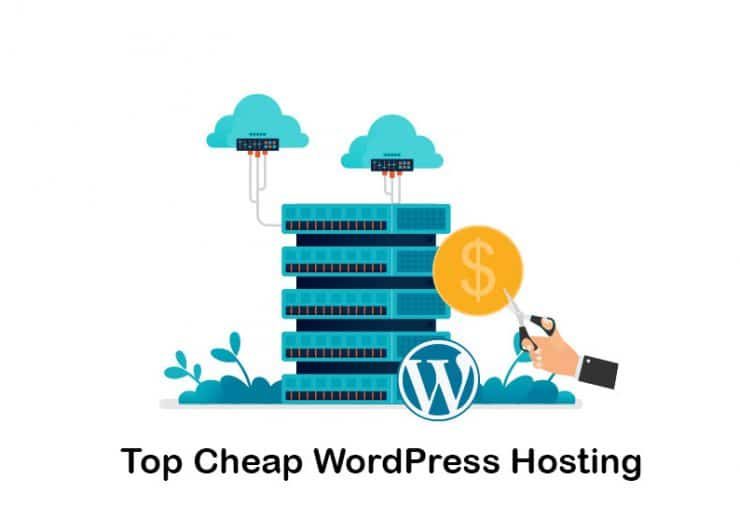Public Cloud vs Private Cloud vs Hybrid Cloud; Which One Is Right for You?
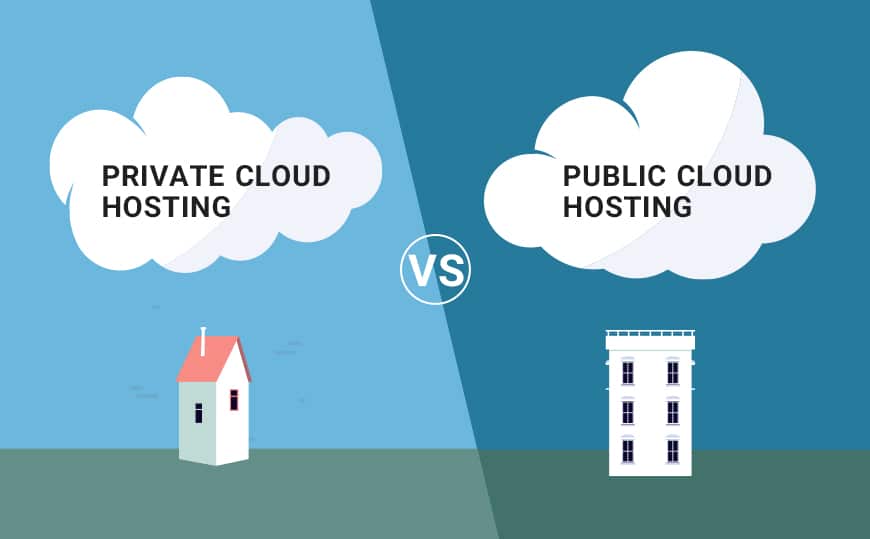
Hybrid cloud computing has been gaining a lot of attention in the recent past. The advantages of hybrid cloud computing play a significant role in the fact mentioned above. If you want to learn more about hybrid cloud computing, you are at the right place. Continue to read, and we will share some important details about it with you.
If you are willing to know cloud computing costs , don’t miss this post!
Public Cloud vs Private Cloud vs Hybrid Cloud
In order to clarify the difference among these three types of hosting, we have to give an explanation of each of them and then decide which one is proper for what kind of situation. So, let’s start with public cloud hosting.Public Cloud Hosting
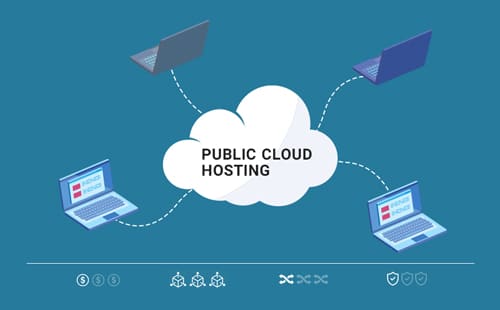
Advantages of Public Cloud Hosting
1- No CapEx
There is no need for you to invest money to deploy the IT infrastructure or maintain it.
2- Affordability
Public cloud hosting provides you with affordable pricing. This will help you to manage the overall cost without a challenge.
3- Cost agility
You will be able to bear the cost accordingly as your business continues to grow.
4- Technical Agility
Public cloud hosting comes along with a higher degree of flexibility and scalability. You can upscale it based on your business needs.
5- Business Focus
Public cloud hosting is less complex, and it will help you minimize the IT expertise you should be hiring for the company.
Disadvantages of public cloud hosting
1- Lack of Security
When it comes to cloud hosting, the public cloud will be the least secure. Hence, it would help if you were extra mindful about your security measures.
2- Lack of Cost Control
If you are going to use the public cloud for large-scale purposes, you will end up spending a fortune on it. In other words, you will not have that much control over the cost.
3- Minimal Technical Control
There is low control and visibility on the infrastructure. It will not cater to the needs that you have.
Private Cloud Server
If you are willing to know what is internet information services , check this post out!
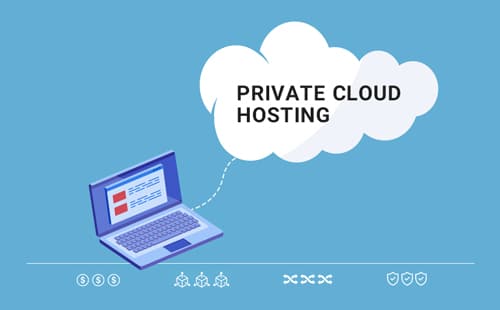
Advantages of Private Cloud Hosting
1- Flexibility
Private cloud hosting comes with a higher degree of flexibility. This will help you to change whatever you host based on your IT needs and business needs.2- Custom Security
You can customize the security of private cloud hosting as per your needs. This will help you to adhere to the security regulations of your organization as well.3- Scalability Without Tradeoffs
You will be in a position to scale up your hosting to cater to unexpected demands. The best thing is that you can do it without compromising efficiency or performance.4- Exclusive Environments
You can gain access to a secure and dedicated environment. Nobody who is out of your organization will have access to it.5- Efficient Performance
You can rely on the performance of the private cloud. It will never disappoint you with efficiency and performance.Disadvantages of Private Cloud Hosting
1- Mobile Difficulty
People who try to access the private cloud from their mobile devices will face difficulties due to security measures.2- Scalability Depends
The infrastructure behind private cloud hosting would not be scalable during specific instances of unpredictable demands. That’s because the resources you have on the server are limited.3- Price
Private cloud hosting is expensive when compared to public cloud hosting. If you use it in the short term, this will be a costly method to consider.What Is Hybrid Cloud?
Any cloud infrastructure architecture that comprises public and private cloud solutions is referred to as a hybrid cloud. The resources are usually managed as part of a larger infrastructure environment. Apps and data workloads can share resources between public and private cloud deployments based on corporate business and technical policies. Hybrid cloud computing can provide you with significant security, scalability, performance, efficiency, and cost benefits.Organizations can employ private cloud environments for their IT workloads and supplement the infrastructure with public cloud resources to manage periodic surges in network traffic, a famous example of hybrid cloud. Alternatively, you might save money using the public cloud for non-critical tasks and data while using the private cloud for sensitive data.
Consequently, access to additional processing power is provided as a short-term IT service via a public cloud solution, rather than requiring the high CapEx of a private cloud system. The environment is connected smoothly to enable optimal performance and scalability in response to changing business demands.
If you are interested to know hybrid cloud definition , this post can help you!
Advantages of Hybrid Cloud Hosting
1- Scale With Security
If you want to scale up without compromising security, hybrid cloud computing would be a great solution available to consider.2- Policy-driven Option
Hybrid clouds provide flexible policy-driven deployment options to you. This will help you to be flexible with your cost, performance, and security requirements.3- Cost Control
You will have complete control over your expenses in the long run. This will help you to get the most out of the money you invest.4- Reliability
Since hybrid cloud computing distributes its services across more than one data center, you can expect to receive maximum flexibility.Disadvantages of Hybrid Cloud Hosting
1- Management
You will need to have internal IT expertise for managing hybrid cloud computing. That’s because IT expertise is required with cloud deployments and spanning the cloud to different locations.2- Added Complexity
Since hybrid cloud comes along with infrastructure complexity, you will have to face challenges with managing it. Evolving with the hybrid cloud can be a challenge as well.3- Price
As you toggle between private and public, you will not be able to determine whether you are getting the most out of the money you invest or not.If you are willing to know who owns woocommerce , don’t miss this article!
Which Cloud Should You Choose?
If you are interested to know the dedicated server hosting meaning , this post can help you!

If you are interested in knowing website hosting charges , this post can help you!
Several criteria, use cases, and limits influence the decision between public, private, and hybrid cloud systems. This is rarely an either/or problem in the real world, mainly because businesses often use all three types of cloud solutions for their unique value propositions.
Even if you’re currently utilizing the cloud, it’s worth adopting a deliberate cloud strategy to make the most of each cloud environment. Begin by describing the requirements of your various workloads, then ranking them according to the benefits and drawbacks of each model.
Because a single ‘company owns them, private clouds have various advantages. The excellent security provided by a private cloud is first and foremost. On-premises clouds may provide the most significant levels of privacy, as business authentication ensures that access is only allowed to those who require it. Because all resources are co-located in the private cloud data center, there is also the benefit of the lowest possible latency.
The most significant disadvantage of the private cloud is the high expense of configuring, maintaining, and upgrading hardware and software. Training costs may have a considerable influence on the bottom line of private cloud installations. Based on this, you can decide when to use what type of cloud.



